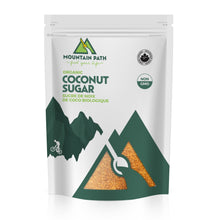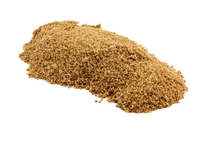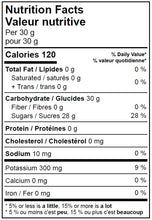Coconut sugar, also known as coconut palm sugar, is a natural sweetener derived from the sap of the flower buds of the coconut palm tree. It is widely used as a healthier alternative to refined white sugar due to its lower glycemic index and trace nutrients. Here’s a detailed overview:
Key Characteristics:
- Appearance: Light to dark brown, often with a granulated texture.
- Taste: Mild caramel-like flavor, slightly less sweet than white sugar.
- Nutritional Profile: Contains small amounts of iron, zinc, calcium, potassium, and antioxidants, though these are not significant in typical serving sizes.
Health Benefits:
- Lower Glycemic Index: Coconut sugar has a glycemic index of around 35, compared to white sugar's 60-65. This means it has a gentler impact on blood sugar levels.
- Natural Composition: Minimal processing retains some nutrients and avoids harmful additives.
- Fructose Content: Contains less fructose than high-fructose corn syrup and many other sweeteners.
Uses:
- Ideal for baking, cooking, and beverages, as it dissolves well and enhances flavor.
- Commonly used in Asian cuisine, particularly in desserts and sauces.
Sustainability:
Coconut sugar is considered environmentally friendly as coconut palm trees produce sap for sugar without the need for replanting, and the same trees can yield coconuts, offering dual benefits.
Caution:
- Though healthier, it’s still a form of sugar and should be consumed in moderation.
- Not suitable for those on strict low-carb or ketogenic diets.






